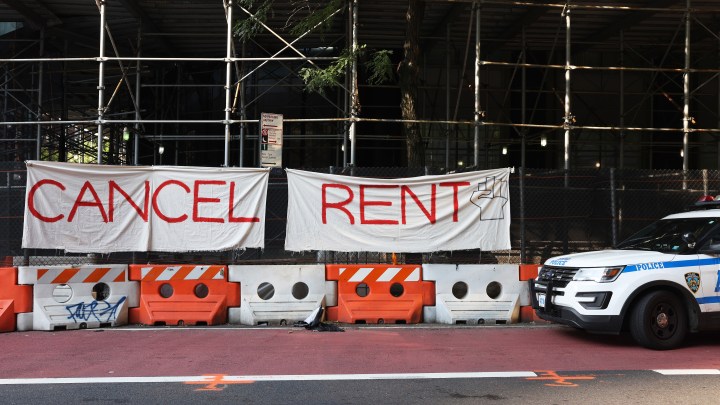
As the new year approaches, government relief programs are set to expire
As the new year approaches, government relief programs are set to expire

We got a whole cornucopia of economic indicators today ahead of the Thanksgiving holiday. Some of those numbers are worth being thankful for: Durable goods orders were a little stronger than expected, along with new home sales and consumer spending.
Other indicators were not so great. There were more initial jobless claims than expected. All in all, more than 20 million Americans filed continuing claims for unemployment during the first week of November.
And starting about a month from today, those Americans will be hurtling over a fiscal cliff that is going to play havoc with their personal economies.
Between Christmas Day and the end of the year, a whole slew of government relief programs put into place to help Americans through the pandemic are coming to an end, with no extension in sight.
Those programs include the government’s Pandemic Unemployment Assistance, meant for people who don’t qualify for regular unemployment insurance such as gig workers and part-timers, and Pandemic Emergency Unemployment Compensation, which keeps benefits going after people use up all of their regular state unemployment insurance.
An estimate by The Century Foundation found that when those programs expire, the economy will lose about two-and-a-half billion dollars a week. And 12 million Americans will lose their benefits.
In normal times, that would force them to rely on non-cash relief. But some of those programs are going away too.
Food boxes
Ever since May, the Agriculture Department’s been running its Farmers to Families Food Box Program, where farmers package up meat, dairy and vegetables for distribution to people who are facing food insecurity during the pandemic. So far it’s delivered around 120 million boxes — roughly $4 billion worth of food.
But that program’s set to expire at the end of the year, too.
In the meantime, food insecurity isn’t going anywhere. It affected around 35 million people before the pandemic, according to the USDA. The nonprofit Feeding America found that the COVID-19 crisis could make that number rise to more than 50 million.
Evictions
Right now, landlords nationwide cannot evict people who haven’t been able to pay their rent during this crisis — thanks to an eviction moratorium put in place by the Centers for Disease Control and Prevention. That moratorium ends on Dec. 31.
Some estimates have found that between 7 and 14 million people will be at risk of eviction when that happens. The National Low Income Housing Coalition estimates that the cost of evicting these people and the toll on social services could end up being $130 billion.
Some cities and states have their own eviction bans in place, but others have let theirs expire.
Student loans and more
Throughout the pandemic, people with federal student loans haven’t had to make payments. And interest hasn’t been accruing on those loans. All of that ends on Dec. 31, putting tens of millions of people on the hook for payments.
A couple other deadlines are coming up at the end of the year. Expanded tax credits for small businesses, so they can provide their employees with paid sick leave, will expire. And state and local governments have until the end of the year to spend federal money earmarked for COVID-19 expenses.
There’s a lot happening in the world. Through it all, Marketplace is here for you.
You rely on Marketplace to break down the world’s events and tell you how it affects you in a fact-based, approachable way. We rely on your financial support to keep making that possible.
Your donation today powers the independent journalism that you rely on. For just $5/month, you can help sustain Marketplace so we can keep reporting on the things that matter to you.


















